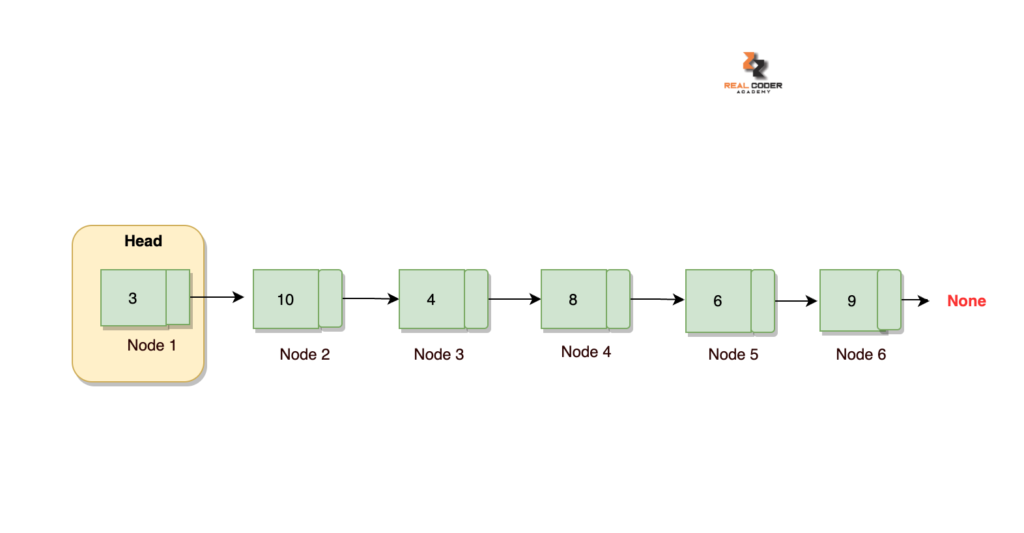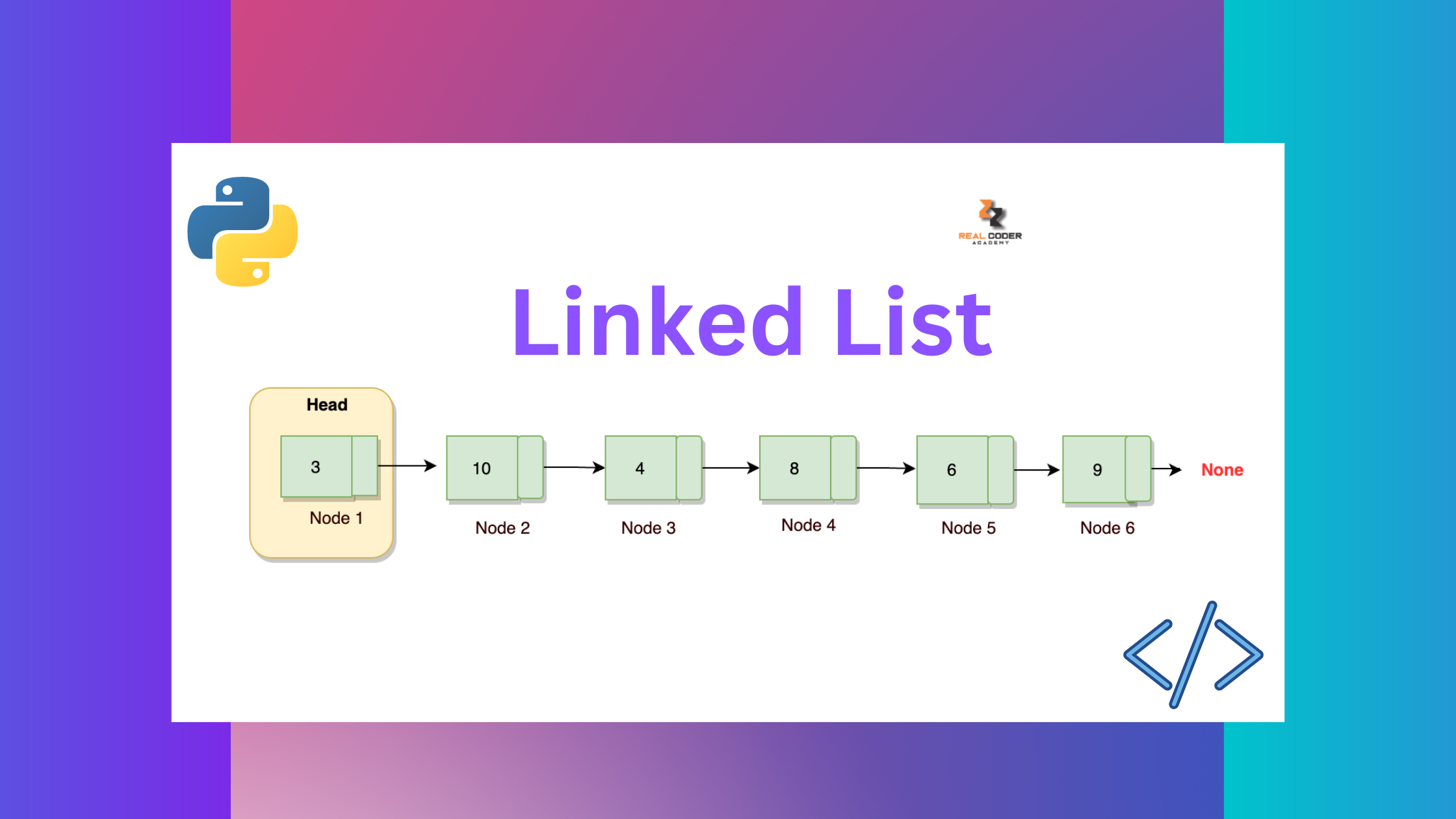Linked List Definition
A linked list, like a regular python list, is an ordered collection of elements. It is a linear data structure. Unlike an array, the elements are not stored at a contiguous location in memory. They link to the list using pointers. As a common convention, the elements are called nodes, and each node is linked to the next one. The first node in the list is the Head and the last node linked to none
Each node stores the data and the reference to the next node. There are single and double-linked lists. In a single linked list, the nodes are linked in one direction. On the other hand, in a double-linked list, the nodes are linked in both directions.

List vs Liked list
Regular list (array)
- Elements are stored in contiguous memory locations
- Element stored using an index which allows faster access
- An array uses static memory allocation. To add more elements, the list needs to be recreated
- Direct or random access method
- Binary or linear search
Linked list:
- Elements are not stored in a contiguous memory location
- The elements also store a reference to the next node
- Linked lists use dynamic memory allocation, meaning memory can be allocated at run time
- The maximum size depends on the heap
- Sequential access
- Linear search
Linked List use cases.
A linked list has several used cases in real-world scenarios, for example, they can be used to implement queues, stacks, graphs or to implement more complex tasks such as lifecycle management.
Linked List Implementation
Create a node class to hold data and reference to the next node.
# create a Node class to hold the data and reference to next node
class Node():
def __init__(self, data =None) -> None:
self.data = data
self.next= None
def __repr__(self) -> str:
return self.data
Now create the linked list class with the possibility to create a linked list from the list of elements at once.
# create the Linked List class
class Linked_list():
def __init__(self, list_data=None) -> None:
self.head= None
if list_data:
node= Node(list_data.pop(0))
self.head=node
for item in list_data:
node.next =Node(item)
node = node.next
Create a print method to print the element in the list.
# printing the elements in the list
def Print_elements(self):
node = self.head
list_of_nodes = []
while node:
list_of_nodes.append(node.data)
node = node.next
return list_of_nodes
Create an iterator to traverse the linked list.
# create a interation
def __iter__(self):
node = self.head
while node is not None:
yield node
node = node.next
Add a new node at the beginning of the list
# inserting a node at the begining of the list
def insert_at_start(self, data):
node = Node(data)
node.next=self.head
self.head= node
Add a new node at the end of the list.
#inserting a node at the end of the list
def insert_at_end(self, data):
node = Node(data)
if self.head is None:
self.head =node
return
for current_node in self:
pass
current_node.next= node
Now let’s insert a new node after an existing node in the list
#inserting a new node after an existing node
def insert_after_node(self, target, data):
new_node= Node(data)
if self.head is None:
raise Exception( ' Sorry the list is empty')
for node in self:
if node.data == target:
new_node.next = node.next
node.next= new_node
return
raise Exception( f" Sorry no Node with data {target} is found")
Inserting a new node before an existing node in the list
#inserting a new node before an existing node
def insert_before_node(self, target, data):
new_node= Node(data)
if self.head is None:
raise Exception( ' Sorry the list is empty')
if self.head.data == target:
return self.insert_at_start(new_node)
prev_node =self.head
for node in self:
if node.data == target:
prev_node.next = new_node
new_node.next = node
return
prev_node = node
raise Exception( f" Sorry no Node with data {target} is found")
Deleting a node in the list
#deleting a node in the list
def delete(self, target):
if self.head is None:
raise Exception( ' Sorry the list is empty')
if self.head.data == target:
self.head = self.head.next
return
prev_node = self.head
for node in self:
if node.data == target:
prev_node.next =node.next
return
prev_node = node
raise Exception( f" Sorry no Node with data {target} is found")










Leave A Reply